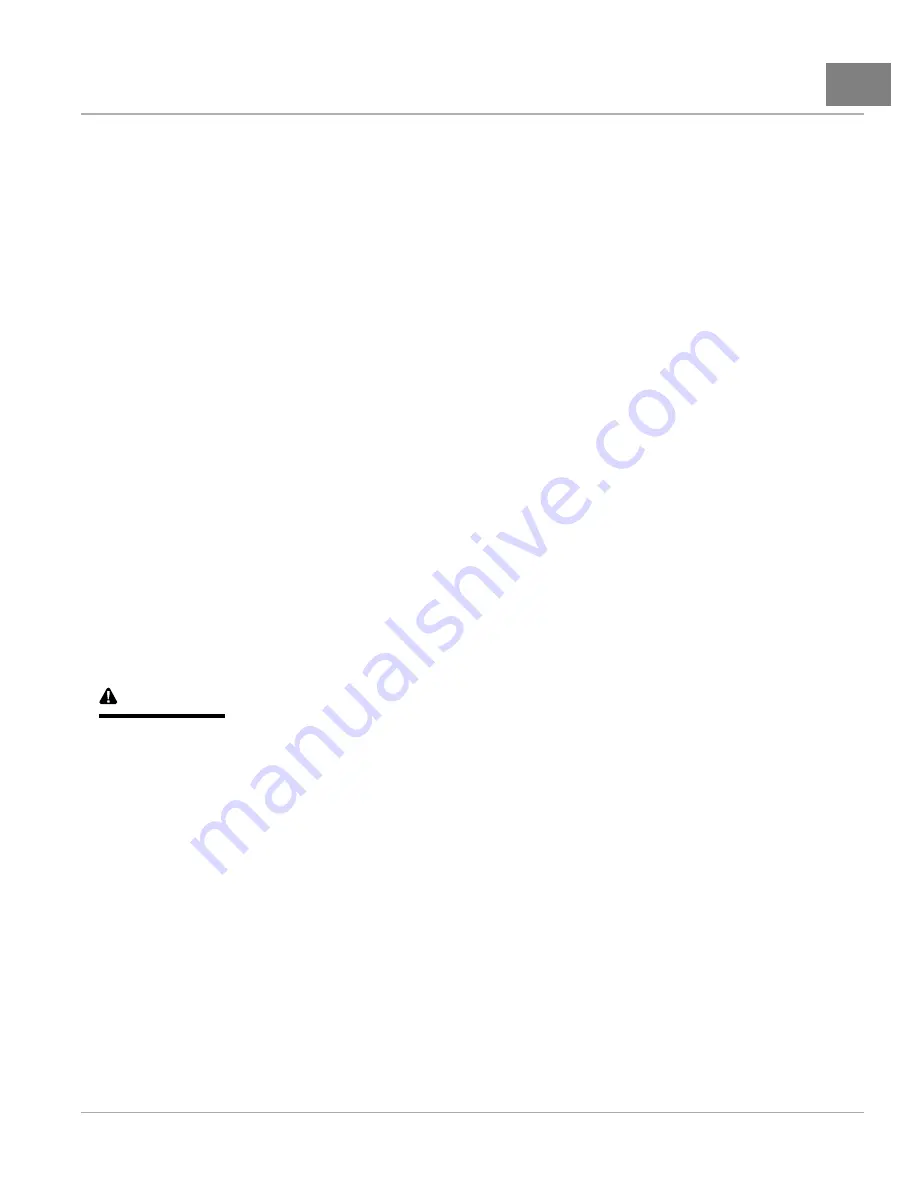
S27 FE 350 FUEL SYSTEM
Fuel Tank
16
4.
Store the tank upside down, with the cap installed, in a well-ventilated area.
FUEL TANK INSTALLATION
1.
With the retaining strap(s) correctly positioned, install the fuel tank in the vehicle. For Turf, Carryall, and
TransPorter, insert filler neck into the polyurethane filler bezel.
2.
Secure the tank with the retaining strap(s) (13 and 18)
(Figure 16-14, Page 16-19 and Figure 16-15, Page 16-20)
.
2.1. Position the straps in the indentions on the tank.
2.2. Install the screw(s) (12) into the speed nut(s) (11). Tighten screw(s) to 25 in-lb (2.8 N·m).
3.
Install the rear body or bed on the vehicle if removed. Install seat back support if removed.
See Body and Trim
Section in the appropriate maintenance and service manual.
4.
Connect the vent tube (6) to the fuel tank vent.
5.
Connect the fuel line (1) to the fuel tank shut-off valve (15). Use a new clamp (16).
6.
Connect the black wire from the fuel gauge to one of the fuel level sending unit screws. Connect the orange wire
to the center stud and install the flat washer, lock washer, and nut. Tighten to 18 in-lb (2.0 N·m).
7.
Slide the rubber boot over the stud
.
8.
Add fuel to the tank.
9.
Connect battery.
See Connecting the Battery – Gasoline Vehicles, Section 10, Page 10-3.
10. Check to be sure the fuel shut-off valve on top of the fuel tank is in the open (ON) position
Page 16-29 or Figure 16-22, Page 16-29)
.
11.
Key-Start Vehicles:
Place the Forward/Reverse handle in the NEUTRAL position and chock the wheels.
See
following DANGER.
12.
Pedal-Start Vehicles:
Place the Forward/Reverse handle in the NEUTRAL position, chock the wheels, and the
neutral lockout switch in the MAINTENANCE position.
See following DANGER.
13. Start the engine.
See following DANGER.
DANGER
• Do not operate gasoline vehicle in an enclosed area without proper ventilation. The engine produces
carbon monoxide, which is an odorless, deadly poison.
• After installing the fuel tank and adding fuel, carefully check all fuel lines and connections for leaks.
Repair any fuel leaks before operating the vehicle.
14. Allow the engine to run for a few minutes to ensure that the fuel lines are full of fuel.
15. Inspect each fuel line for leaks.
15.1. Check all of the fuel line clamps at the carburetor, fuel filters, fuel pump, and fuel tank for leaks.
15.2. Inspect each fuel line to ensure that the lines are not cracked, cut, or worn.
2009 FE 350 Maintenance and Service Supplement
Page 16-27
















































